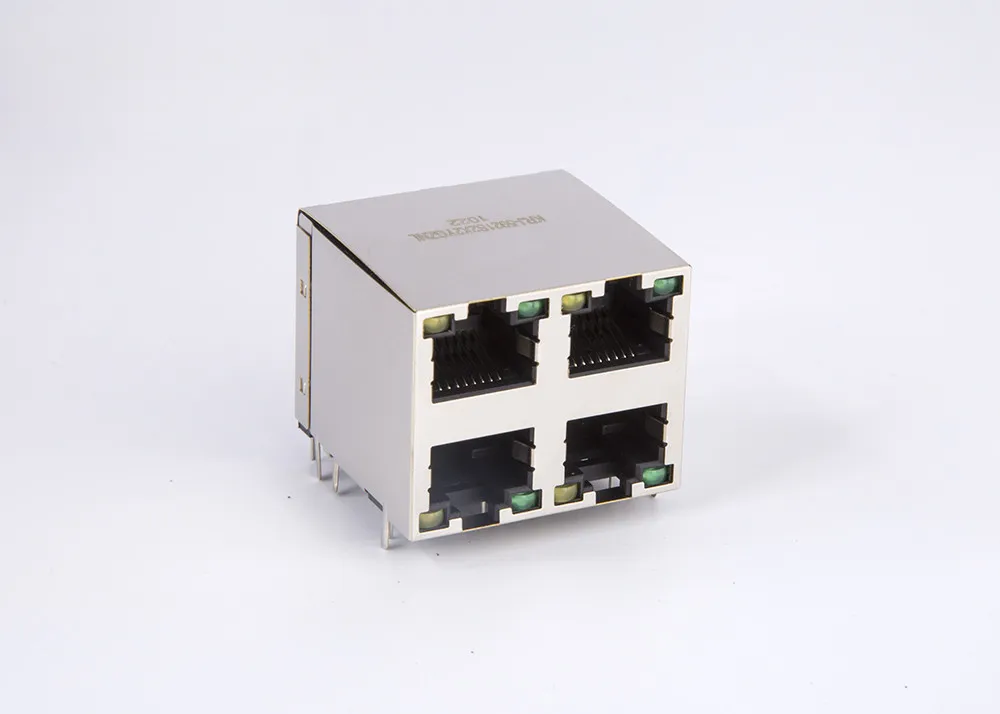Why RJ45 Connectors are Key to Patient Monitoring Systems: What You Need to Know
When it comes to healthcare, the ability to track a patient's condition in real-time can make all the difference. Hospitals and medical clinics rely on patient monitoring systems to keep an eye on critical health data such as heart rate, blood pressure, and oxygen levels. But how does this information get from the monitoring equipment to healthcare providers in a timely and reliable way? The answer lies in RJ45 connectors.
You may have seen an RJ45 connector before – it’s the small, rectangular plug commonly used at the end of Ethernet cables (the same cables that connect your computer to the internet). While you might associate these connectors with home networking, they also play a crucial role in patient monitoring systems. Here’s how RJ45 connectors help ensure that patient data is transmitted safely and efficiently, supporting better healthcare outcomes for everyone.
In healthcare, patient monitoring systems use RJ45 connectors to connect various medical devices—such as heart rate monitors, blood pressure cuffs, and ECG machines—to hospital computer systems or servers. This allows the collected health data to be shared in real-time with medical staff, who can monitor patients’ conditions instantly, no matter where they are in the hospital.
Why Are RJ45 Connectors Important in Healthcare?
- Fast and Reliable Data Transfer
In healthcare, the information that comes from patient monitoring devices is critical. RJ45 connectors, paired with Ethernet cables, allow for high-speed data transfer. This ensures that patient data, like vital signs or heart rhythms, is transmitted quickly and accurately. Real-time data is essential in urgent care situations, where every second counts.
- Standardized and Universal Connectivity
RJ45 connectors are widely used in many industries, making them a universal solution for connecting medical equipment across different systems. Whether it’s a heart monitor from one manufacturer or a blood pressure cuff from another, RJ45 connectors make it easy to integrate devices and ensure that they work together seamlessly within a hospital’s network.
- Cost-Effective and Easy to Source
Compared to other specialized connectors, RJ45 connectors and Ethernet cables are relatively inexpensive and easy to replace or repair. This helps keep the costs down for healthcare facilities while ensuring that the system remains up and running. The cost-effectiveness of RJ45 connectors is especially important as hospitals look to expand or upgrade their monitoring systems without blowing the budget.
- Scalability for Growing Needs
As hospitals grow and add more patient monitoring devices, the infrastructure needs to keep up. RJ45 connectors make this easy. They allow for easy expansion of the network. Hospitals can add more devices or upgrade their systems simply by plugging them into existing Ethernet cables—no major redesigns necessary. This flexibility ensures that patient care can continue smoothly as medical technology evolves.
- Simple to Install and Maintain
One of the biggest advantages of RJ45 connectors is that they are easy to install and maintain. If a cable or connector gets damaged, hospital staff can quickly swap it out without needing specialized tools or expertise. This means fewer disruptions to patient monitoring systems and quicker recovery times when problems do arise.
How RJ45 Connectors Improve Patient Monitoring
Patient monitoring systems gather data from various sensors attached to the patient’s body, such as heart rate, blood pressure, and oxygen levels. This data is then transmitted via Ethernet cables with RJ45 connectors to a central system where medical professionals can monitor the patient's condition.
By using RJ45 connectors for this data transmission, healthcare providers enjoy several key benefits:
- Real-Time Monitoring:
With RJ45 connectors, patient data is transmitted in real time, allowing doctors and nurses to instantly access the information they need. This is especially important in critical care situations, where timely interventions can save lives.
- Easy Integration with Hospital Networks:
Many hospitals already use networked systems to manage patient records, lab results, and more. RJ45 connectors allow patient monitoring systems to be easily integrated into these larger networks. This means that doctors and nurses can access data from any device, anywhere in the hospital, creating a seamless experience for the healthcare team and better care for patients.
- Support for Multiple Devices:
A typical patient monitoring system involves more than one device, from temperature sensors to ECG machines. RJ45 connectors allow all of these devices to be linked together through the same network, creating a unified system for tracking patient health data.
The Bigger Picture: Why It Matters
Using RJ45 connectors in healthcare might seem like a small detail, but it plays a huge role in improving patient care. By enabling fast, reliable, and cost-effective data transfer, RJ45 connectors ensure that critical patient information reaches healthcare providers when they need it most. Whether it’s a heart rate monitor, an oxygen sensor, or a blood pressure cuff, the data these devices collect helps doctors make informed decisions that can save lives.
As medical technology continues to advance, the role of RJ45 connectors in ensuring smooth and seamless communication between devices will become even more important. Hospitals and clinics that understand the value of these connectors are better equipped to provide the best care possible and respond effectively to patient needs.
In short, RJ45 connectors aren’t just for computers and networks—they’re an essential part of modern healthcare. By supporting real-time data transmission and easy device integration, these connectors play a key role in keeping patients safe and helping medical professionals deliver the best possible care.
To find products and services more accurately, please try entering keywords for search.
For more product and service content, please contact us and send an email to sales@dimud.com.
We sincerely look forward to connecting with you!


